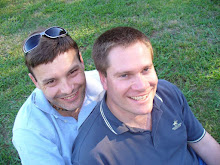Football hooliganism seriously threatened the UK's social fabric in the late 60s. The government soon responded with the 1968 Public Order Act, allowing the courts to ban offenders from football grounds. This social scourge hit the headlines again in 1985 when 39 people died during a pitched battle between Liverpool and Jurventus supporters at Heysel Stadium. Events like this resulted in English clubs being banned from European football competitions, a ban that remained in place until 1990.
Hooligans were eventually brought under control using a form of court-issued restraining order known fondly as an ASBO (pronounced az-bo), or Anti-Social Behaviour Order. ASBOs first made their appearance in 1998. I must admit that it took me several months to work out what an ASBO was when we first arrived in London. They were in the news a lot, but the terms were never explained.
In March, the Home Office reported that 7,356 ASBOs had been handed out in England and Wales in the last seven years. Aside from traditional anti-social acts like hooliganism, ASBOs have been issued for an expanding range of behaviours. Last year a woman received an ASBO banning her from jumping into rivers and canals or onto railway tracks. Apparently, she kept placing rescue services at risk as she continually attempted suicide. Other more obscure orders include:
- Two teenage boys from Manchester are forbidden to wear one golf glove.
- A 13-year-old was forbidden to use the word "grass".
- A 17-year-old was forbidden to use his front door.
- An 87-year-old man ordered not to shout, swear or make "sarcastic remarks to neighbours or their visitors".





No comments:
Post a Comment